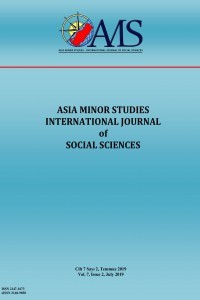İran’da Nasırüddin Şah ve Muzafferüddin Şah Dönemlerinde İngiltere ve Rusya’ya Verilen İmtiyazlar (1848-1906)
Privileges Granted to England and Russia in Nasırüddin Shah and Muzafferüddin Shah Period in Iran (1848-1906)
Author(s): Yılmaz KaradenizSubject(s): Political history, Economic policy, Government/Political systems, International relations/trade, Military policy, 19th Century, Pre-WW I & WW I (1900 -1919)
Published by: Kilis 7 Aralık Üniversity
Keywords: Persia; Nasiruddin Shah; Muzafferüddin Shah; England; Russia; Magnates; Privileges;
Summary/Abstract: The process of turning Iran into a semi-colonial state by Britain and Russia in the Nasiruddin Shah and Muzafferuddin Shah periods started with the political destruction of the Qajar administration. Britain was at the center of this work, and it directed Russia towards its own political and economic interests. It has prevented Russia from dangling into the oil regions in the southern part of Russia, as a means of making its military and economic influence in the north of Iran. The fact that Nasiruddin Shah did not have the capacity to ward off internally disproportionate movements, and borrowed financially from England and Russia, led the two states to push the boundaries of independence in Iran from obtaining concessions. With the privileges given in Muzafferüddin Şah's period, domestic production came to a halt and the missionary activities carried out on the outsourced workers disrupted the internal balances. The privileges taken by the British and Russian capitalists and the heavy debt burden of Iran were carried out through the banks established by the two states. Archaeological excavation materials were added to the concessions taken for the extraction of oil and mines, and the treasures and works of Persia and Sassanid period were plundered.
Journal: Asia Minor Studies
- Issue Year: 2019
- Issue No: 2
- Page Range: 231-243
- Page Count: 13
- Language: Turkish

